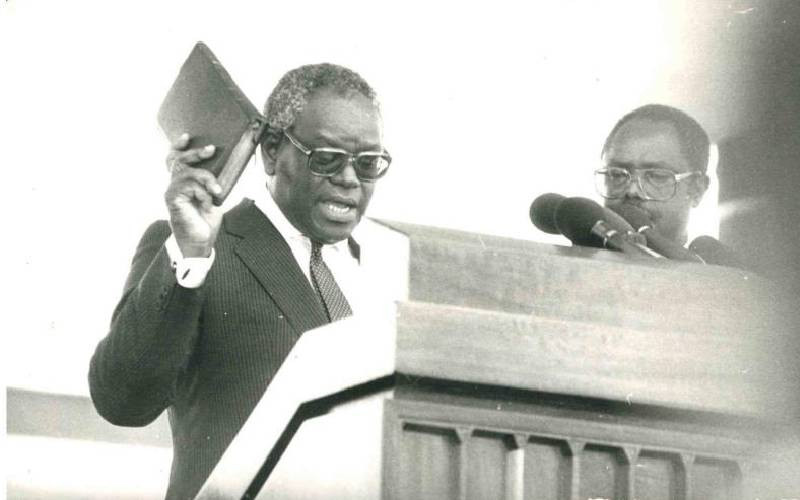×
The Standard e-Paper
Fearless, Trusted News

The current dilemma facing Mt Kenya and the scramble for the region's kingpin mantle mirrors complexities witnessed in a past transition when such a vacuum loomed.
Thirty-three years ago, Mt Kenya had just undergone a transition. Mwai Kibaki, who had been vice-president since 1979, had just been sacked. The other pretender to the throne, Charles Njonjo, had been hounded out of office as Constitutional Affairs minister after the failed 1982 coup and reduced to a social and political recluse, a pariah of sorts.